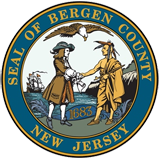Bergen County Technical School is very proud to offer our students the opportunity to gain college credits prior to graduating from Teterboro. The classes are taught by our faculty members and are accredited by a college or university. Some of our current offerings are:
• Anatomy & Physiology (Fairleigh Dickinson University)
• Calculus Honors (Fairleigh Dickinson University)
• Global Challenge (Fairleigh Dickinson University)
• Introduction to Sociology (Syracuse University)
• Introduction to Information Technology (NJIT)
• Organic Chemistry (Fairleigh Dickinson University)
Students who elect to take any of these courses must complete a registration form provided by the college, and are responsible for all associated course fees. Each of these early college courses enables the enrolled students to earn three (3) college credits upon successfully completing the course. As per a variety of agreements with BCTS, each college discounts their cost per credit for these courses at an average rate of 30–50 percent. Credits earned will be directly accepted by the institution issuing the credit. However, all earned credits may not be accepted at alternate universities or colleges. It is the discretion of each institution to accept or deny the credits earned at an alternate college or university.
Automotive Engineering & Design
Automotive Engineering & Design is a competency-based instructional program that emphasizes the development of
automotive technicians trained for the demands of today’s sophisticated automotive repair, engineering, and laboratory environments. Unlike most traditional automotive programs,
AED offers students the opportunity to work with computer-assisted design technology in an engineering-infused environment. The structure of the program emphasizes both theory and opportunity for engagement in a live work process. Students are tracked through a series of proficiencies and projects that support the A.S.E.- and Project Lead the Way- approved curricula. An individual educational plan is designed for each student and individualized instructions implemented throughout the four-year process. The AED Program is unique in that it offers opportunities for discovery in Automotive Fundamentals, Automotive Design, Engineering, Performance, Diagnostics & Repair, Clean Air & Alternative Fuel Technologies,
and Navigational Systems that bring automotive students together with other technical disciplines, such as Electronics, Auto Fabrication, Pre-Engineering, and Welding. The Automotive Technology suite is equipped with state-of-the-art diagnostic technology. The service environments designed for production tied to specific competencies sequenced through the advancement of the automotive curriculum, current computer-driven diagnostic, and alignment and colorizing technologies. With experience and with a background in college preparatory academics, students are well prepared for college acceptance, postsecondary technical school placement, or field employment. Students who meet all eligibility criteria become A.S.E. certified. Students may also earn college credit through the Project Lead the Way courses.
Automotive Engineering & Design Program Highlights: • Foundations in Auto Technology
• Foundations in Auto Technology
• Systems Analysis
• Introduction to Engineering Design
• Engineering Design and Development
• Advanced Systems Analysis
• Principles of Engineering (elective)
• Digital Electronics (elective)
• AP Physics B (elective)
• Auto Fabrication and Design Studio 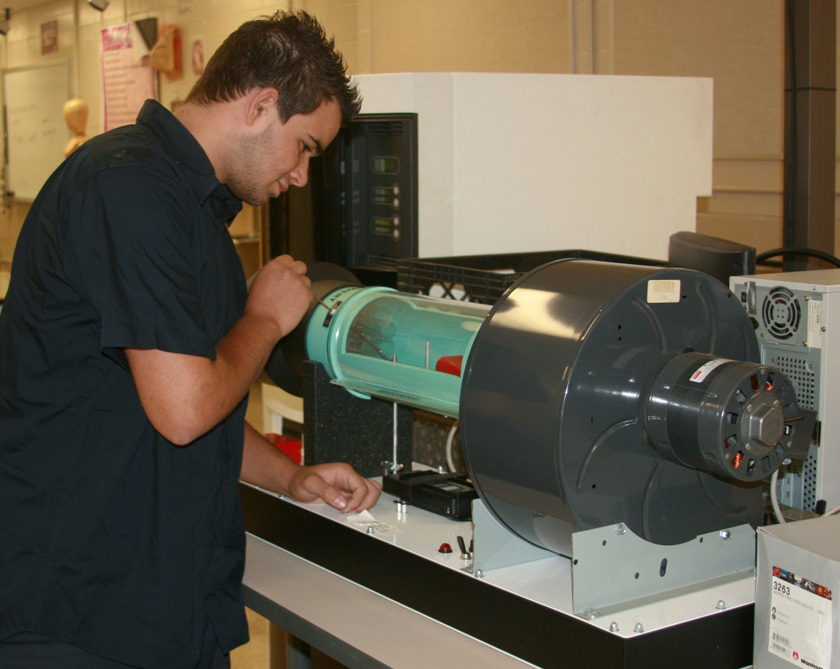 • Dell Winston Solar challenge
• Dell Winston Solar challenge
• Partnership with BMW
• NATEF Certification
Strategic Asset Management
Strategic Asset Management (S.A.M.) capitalizes on our proximity to New York City—the financial capital of
the world—to prepare students for a variety of careers in the financial services sector, including investment and commercial banking, brokerage, trading, and investment management. The program consists of a rigorous academic curriculum that engages students to learn sophisticated content material usually taught at the M.B.A. level. A “theory in action” approach teaches concepts in finance and economics through their impact on financial markets. By focusing on how companies create wealth as well as how investors evaluate risk and growth potential, students will acquire skills and knowledge culminating in the management of investment portfolios on a “live-to-the-market” basis.
S.A.M. focuses on the development of skills that provide students with the foundation to enter and be successful at premier college programs, business, or otherwise. Emphasis is on use of the case study method to learn decision making under uncertainty, the use of mathematical reasoning in
decision making, and the balance of quantitative and qualitative factors in evaluating alternatives and assessing risk.
Business Program Highlights:
• Introduction to Business Management
• Macroeconomics
• Strategy Formulation
• Derivative Trading
• Microeconomics
• Investment Analysis
• Corporate Finance
• Senior Internship
• Decision Analysis
• Portfolio Management
• Risk Assessment
Commercial Art and Graphic Design
This fast-paced and deadline-oriented program specializes in preparing artists and designers for careers in the world of design, communication, and marketing. Students study every essential aspect of the commercial art field through immersion in curriculum which embraces new technology while still emphasizing traditional skills and principles of art and design. Studio classes include graphic design, multimedia design, web design, advertising & marketing, and electronic prepress technology. Students engage in a real-world curriculum that is driven by high expectations, computer graphics instruction, and current graphic imaging technologies. They are required to maintain a portfolio that exhibits a high degree of creativity as well as technical proficiency. Because of our proximity to the creative epicenter of the world, students have access to internships in hundreds of production houses that support the art and imaging needs of prestigious area businesses.
Commercial Art & Graphic Design Program Highlights:
• Foundations of Graphic Design and Art History
• Fundamentals of 2 Dimensional Design & Drawing
• Graphic Design Studio I Advertising & Market Development
• Graphic Design Studio II Advertising Adobe Illustrator, Photoshop Adobe InDesign Apple iMovie
• Graphic Design Studio III Adobe Go Live Macromedia Flash Animation Flexographic Printing
• Professions Practice in Design
• Senior Internship
Computer Science
The Computer Science department is designed to meet the needs of both the student wishing to pursue a career upon graduation and those students planning for undergraduate studies in computer science. The curriculum is aligned with the most recent Cisco curriculum guidelines and evolutions in the field of programming. As such the department offers a good program balance of practical skills and underlying knowledge necessary for adapting to the ever and often changing needs of technology. The program supports research in communications information, network theory, programming, and technology. Fundamental and experimental research pertaining to telecommunications and networking aspects of wide-area, regional, or local area networks; wireless and wired network access, personal communications systems; and inter-networking of various types of networks is supported. Research priorities include efficient design and engineering of high-speed computer and communications networks; advanced modeling techniques and teletraffic theory; dynamic network control; network architecture; network security; and, transmission and switching systems. Students are trained to comprehend, upgrade, operate, repair, program, troubleshoot, and maintain computers. With studies also focusing on computer programming theory, key topics include object-oriented programming and data structures; programming aspects of wide-area, regional, or local area networks; programming languages and applications; wireless and wired network access; and, inter-networking of various types of networks. With emphases on both client- and server-side programming, research priorities include efficient design of a multitude of program types and their application to real problems.
Computer Science Program Highlights: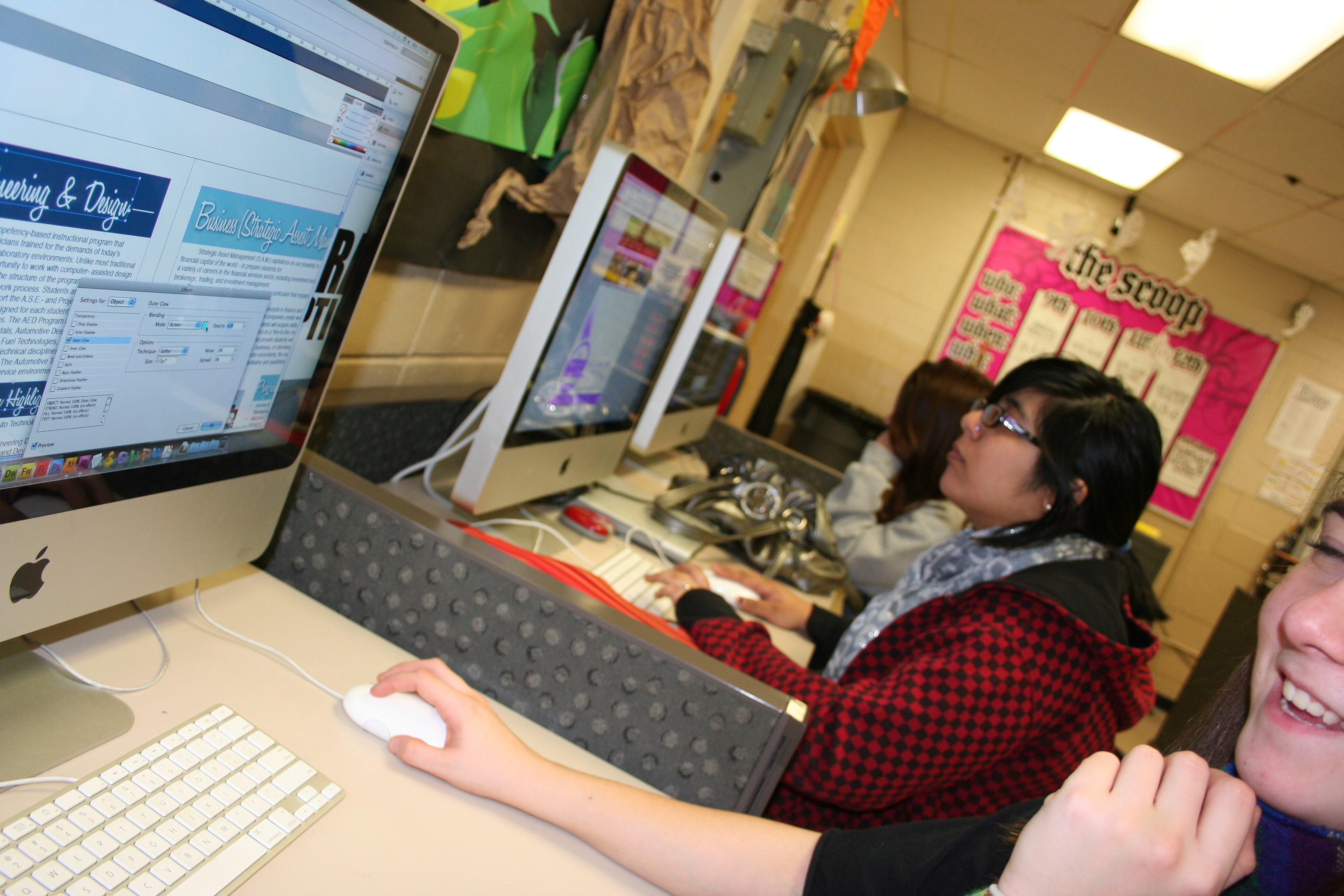
• Survey of Information & Telecommunications Technology
• Information Technology and Telecommunications Essentials • Java Programming
• Introduction to Information Technology • AP Physics B
• Cisco Networking Academy I – Introduction to Networking • Geographical Information Systems
• Cisco Networking Academy II – Advanced Networking • AP Computer Science A
• Business Computers (NJIT College-Level course)
Culinology ®
“The emerging discipline of blending
the culinary arts and the science of food.”
The Culinology® program blends the science and technology of food production and preservation research with cooking and the culinary arts. BCTHS/Teterboro’s program was approved by the education committee of the Research Chefs Association, and is the first high school program of its kind in the United States. The program offers strong partnerships with corporations such as Pepsi and colleges like Rutgers to provide a unique hands-on experience for students as they complete their course work. Students enrolled in the program who are interested in pursuing an undergraduate degree in the area of Culinology® will be better prepared for the science and technology curricula that they will have to master once they get into college. Students are offered two tracks of study; one that has a stronger food science focus and the other a more culinary science focus. Culinology® graduates are prepared for careers in research and development of food products, new ways to store and manufacture foods, and new products that meet health and safety standards.
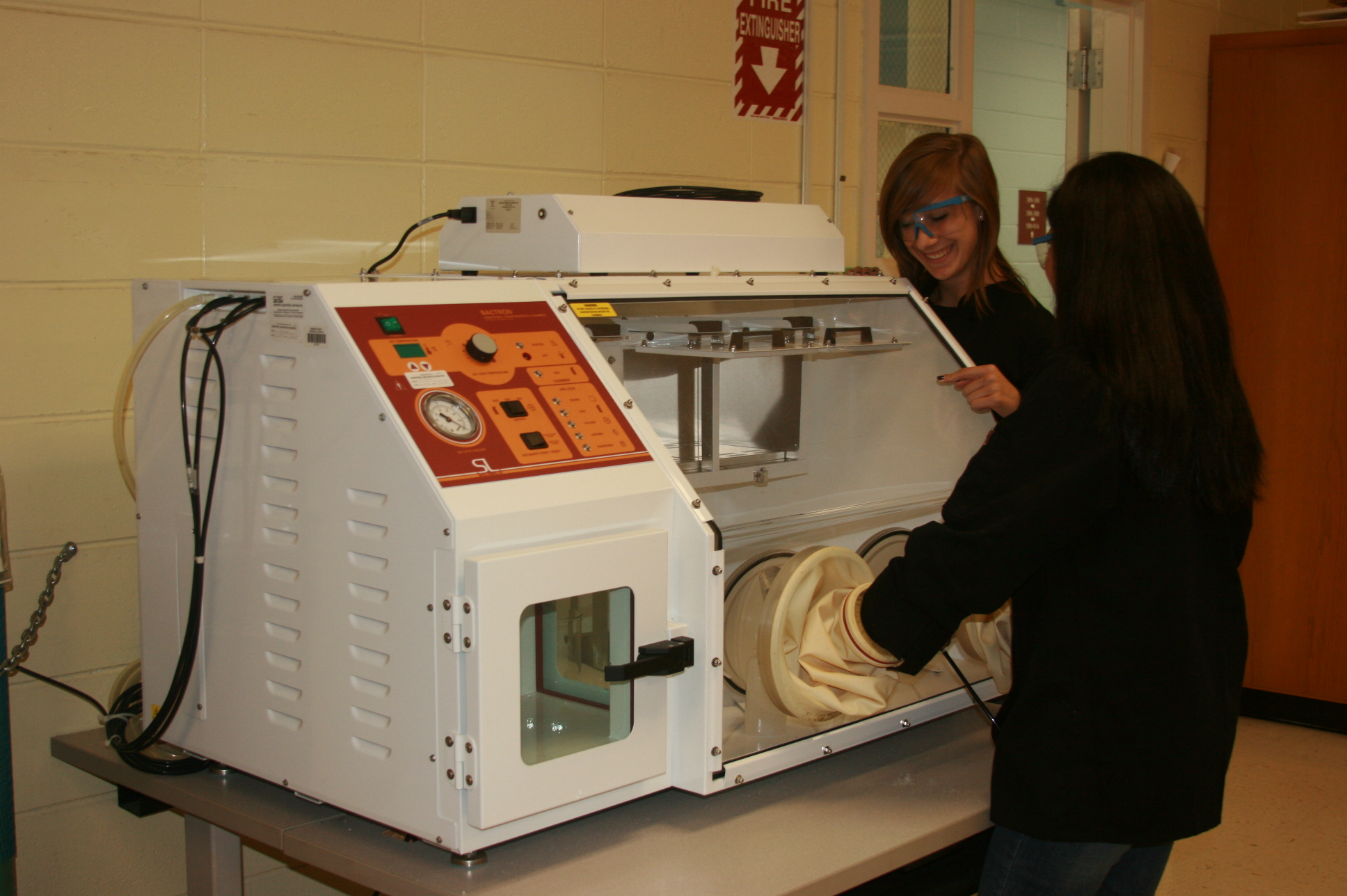 Culinology® Program Highlights:
Culinology® Program Highlights:
• Intro to Culinology®
• Microbiology of Food
• Chemistry of Food
• Culinary Essentials I & II
• Nutrition Food and Health
• Advanced Culinology®
• ServSafe Certification
• AP Biology (elective)
• AP Chemistry (elective)
• Organic Chemistry
• Senior Internship
Digital and Media Arts
Specializing in Multimedia,
New Media, and Broadcast Technologies
The Digital Media Arts Program responds to a natural evolution of the modern era. Designed to prepare students for careers as multi-media producers as well as for emerging careers in new media production, state-of-the-art technological tools are built into all courses. The curriculum provides a profession oriented, academically sound education in the art, management, and science of communication through digital multi-media and new media production. At the heart of the process are several campus-based web entities that provide dynamic backdrops for the application of the proficiencies honed through virtually all of the Digital Media courses. Students in the Digital Media Option conceptualize, plan, develop, and create digital content that supports student-managed websites, including an emerging electronic journalism web publication along with additional methods of media distribution that include in-house video programming and broadcast. Designed to prepare students for professional production work, this program introduces those skills required for careers as producers, directors, art directors, production assistants, and writers, as well as emerging careers in new media and immersive technologies for the web.
Digital Media Program Highlights: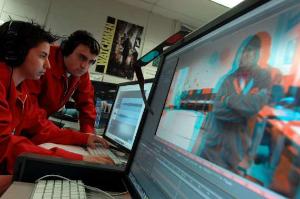 • Introduction to Digital Media
• Introduction to Digital Media
• Web Development & Design Series
• 2D Graphics
• Advanced Digital Media
• Audio Production
• Animation
• Digital Video Production
• Digital Audio Production Series
• Multi-Media Studio Series
• Senior Internship
• New Advances in Digital Media
Fashion Design
Giving form and function to clothing, Bergen County Technical High School’s Teterboro Fashion Design Program expresses itself in the language of style, ever-changing in harmony with the attitudes of the time and fundamental human need. With increasing high end computer interfaces, students experiment with design concepts and patterns before turning ideas into fashion statements that continue to move the industry forward into new visual and practical territory. The center for the Fashion Design Program is a fully equipped design studio in which students weave their way through the process of color and fabric selection, pattern making, and sewing working from concept to the construction of finished garments. Students study design aesthetics, draping, industrial machines, specialty fabrics, men’s and women’s wear, fashion analysis and criticism, accessories and costume design. Additionally, the Fashion Department incorporates the Gerber Technologies’ computerized systems for Pattern Design, Digitizing, Model Making, Marker Making, Plotting and Automatic Computerized Cutting. Gerber systems are an important part of how clothes are designed and produced today, offering automated and computerized time-saving solutions that have redefined the industry. An annual spring highlight is the program’s fashion show extravaganza presented by the Fashion Design students, who are also introduced to runway arts and poise. The program draws upon college faculty who serve as adjuncts to the program providing workshops in fashion art and design. Fashion Design students consistently receive local and national recognition for their creations and participate in annual Skills USA conferences/competitions and community projects. With academic achievement and high performance in Fashion Design, graduates are well qualified for numerous entry-level positions, as well as entrance into world-renowned fashion design institutes, colleges, and universities.
 Fashion Arts Program Highlights:
Fashion Arts Program Highlights:
• Foundations in Fashion Design
• Flat Pattern Design and Gerber Technology
• Textile Studies and Flats & Specs for the Fashion Industry
• Portfolio Illustration and Visual Merchandising
• Flat Pattern Design & clothing Construction
• Fashion Marketing
• Design Development and Fashion Merchandising
• Advanced Flat Pattern Design & clothing Construction
• Senior Internship
Law and Justice
The Law & Justice program provides students with an in-depth
background in the foundation of laws, law practice, criminology, forensic science, and technical methods used today by various agencies to protect the public. Studies in the foundation of laws from common law to constitutional law, the American system of justice, court structures, the art of debate, and individual rights provided by
the Constitution will be analyzed as the basis for understanding the balance between law, justice, and public safety systems. Academic courses will integrate technical writing methods to develop reports, legal briefs, summaries, and arguments utilized to present scientific evidence, legal defenses, and position documents. The program will also offer courses in the history of various public safety agencies and the mathematical principles needed to solve the mechanics of an event. Through emerging partnerships with local, state, and county agencies, members of the Bar and the judicial system, and various specialists employed in judicial and public safety professions, students will be exposed to a variety of immersive experiences in the theoretical, practical, and technical arts and sciences associated with law, criminal justice, and public safety. A student graduating from this program will be able to continue his education at either a two- or four-year college, university, technical school, or law enforcement academy, as well as be employed in support occupations within the judicial and public safety professions.
Law & Justice Program Highlights: • Introduction to Law and the Justice System
• Introduction to Law and the Justice System
• Police Studies & Corrections
• Juvenile Justice
• Family Law
• Forensic Science
• Consumer Law
• Senior Seminar
• AP US Government
• Criminology
• Computer Technology
• Police Studies & Corrections
• Constitutional Law – Case Studies
• Torts
• Senior Internship
• Sociology (elective College Level with Syracuse University)
Aerospace Engineering
The Pre-Engineering Program is a four-year sequence of courses which, when combined with traditional mathematics and science courses, introduces students to the scope, rigor, and discipline of engineering prior to entering college. The curriculum is designed to prepare secondary school students for admission, in some instances with advanced standing, to high-quality engineering schools and, once there, to succeed. Pre-Engineering students take four years of math culminating
in calculus, as well as four years of science and three of a foreign language. Pre-Engineering classes begin in grade
nine and are co-taught by a Pre-Engineering instructor and
a physics teacher. School-to-Careers and Tech Prep activities, such as visits to colleges and exchanges with local engineering firms, are integral to the program. Graduates possess the necessary science and math skills, as well as practical experiences, for entry into most college engineering
programs. The technology-infused curriculum is driven by a series of technical practica designed to mesh the hands-on application of engineering theory with rigorous core academics. Pre-Engineering students find themselves functioning in research, design, and development teams built around various real-world engineering problems that form the basis of a variety of engineering projects. In addition to challenging core academics, the engineering sequence includes Principles of Engineering, Engineering Design & Development, Digital Electronics, CAD, and Computer Integrated Manufacturing Systems (CIMS).
Pre-Engineering Program Highlights:
• Introduction to Engineering and Design
• Honors/AP Mathematics Sequence
• Honors/AP Science Sequence
• Engineering Design Development
• Digital Electronics
• Computer Integrated Manufacturing
• Principles of Engineering
• Civil Engineering & Architecture
• Geographical Information Systems
